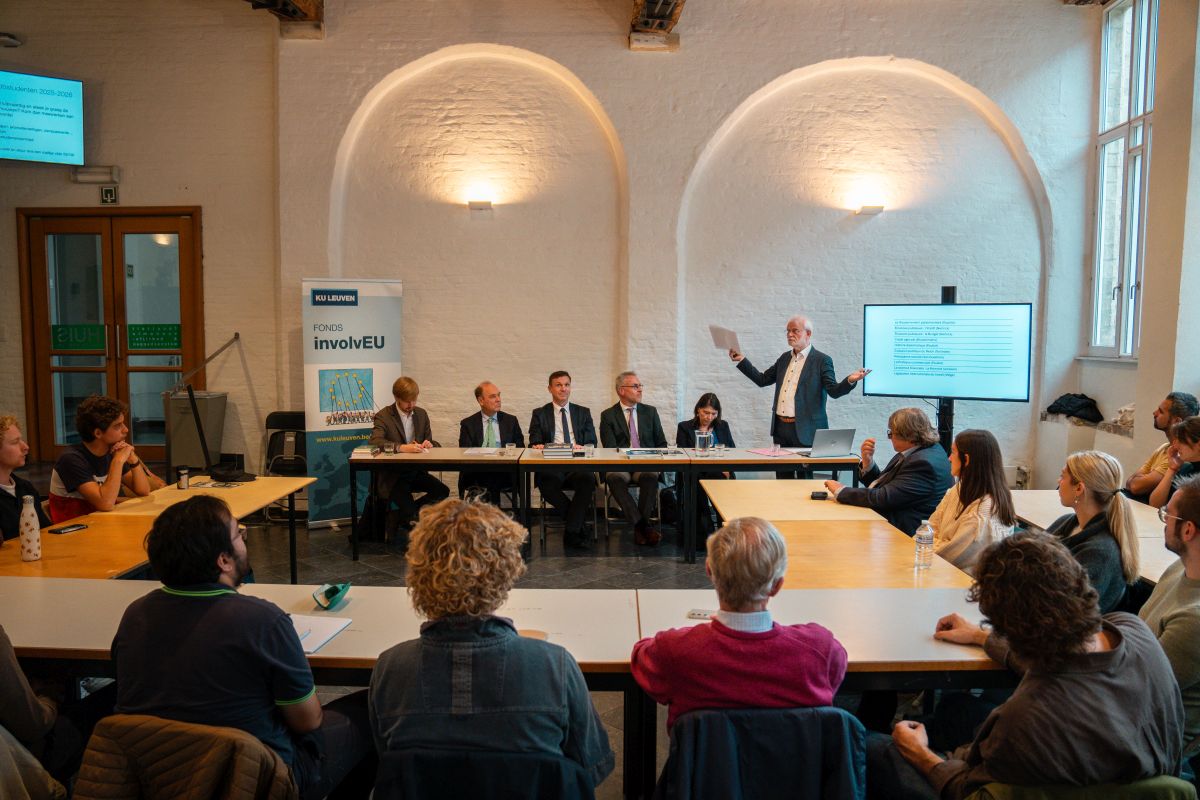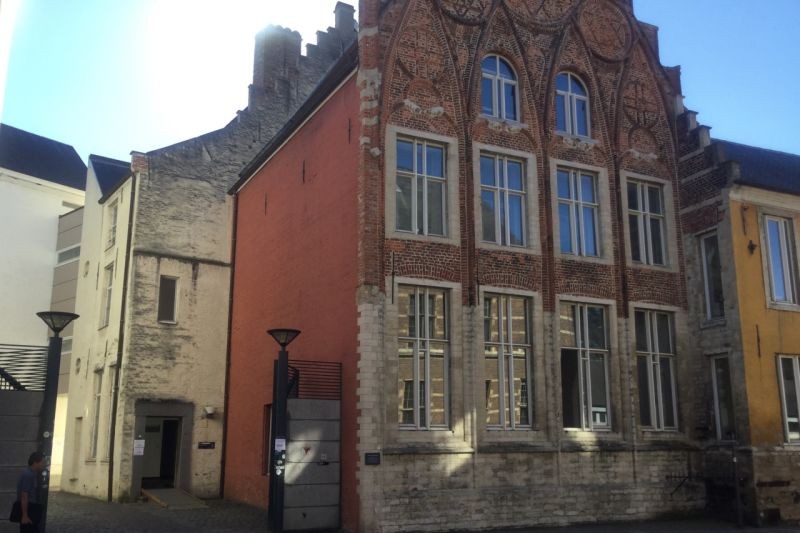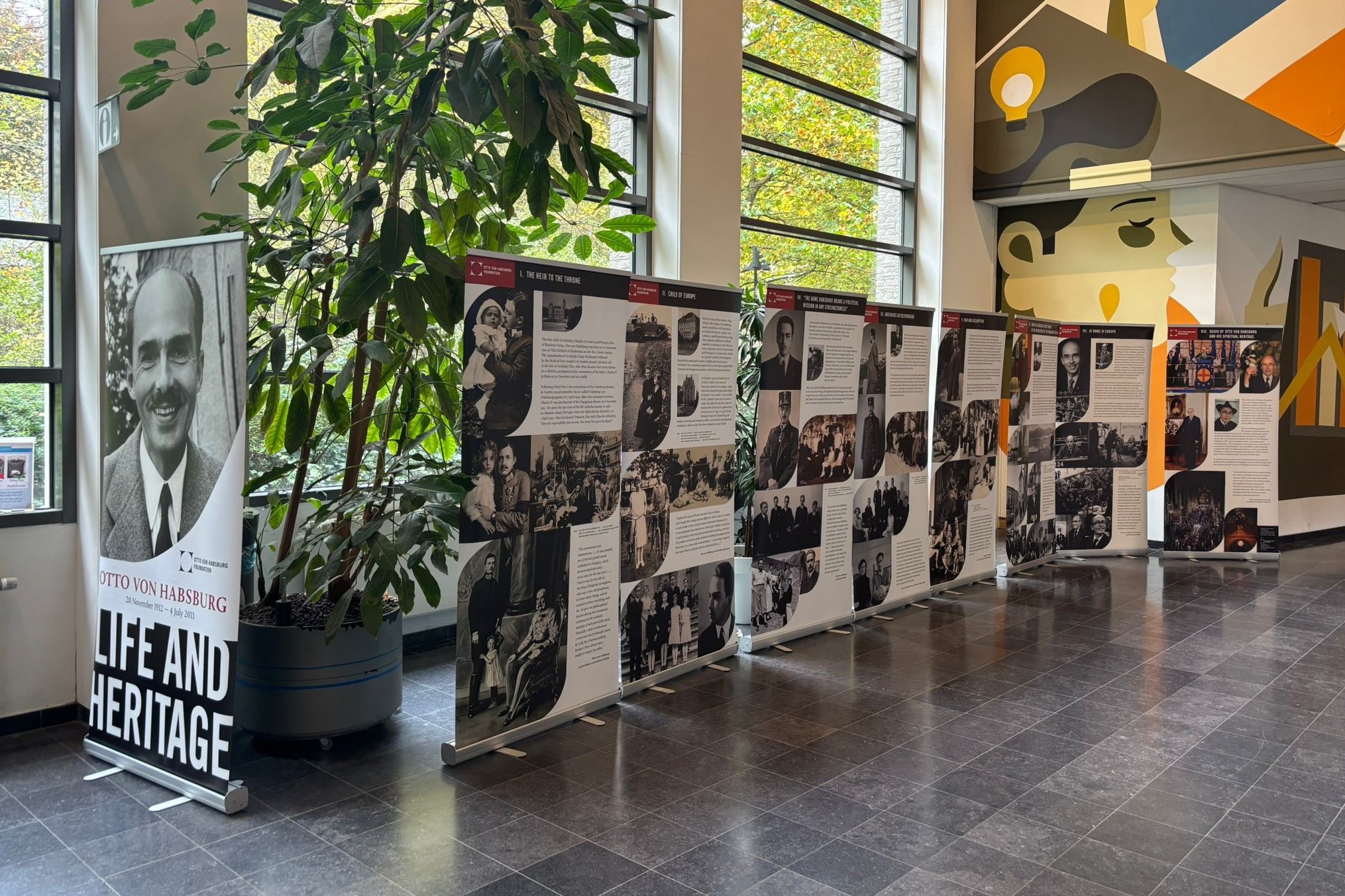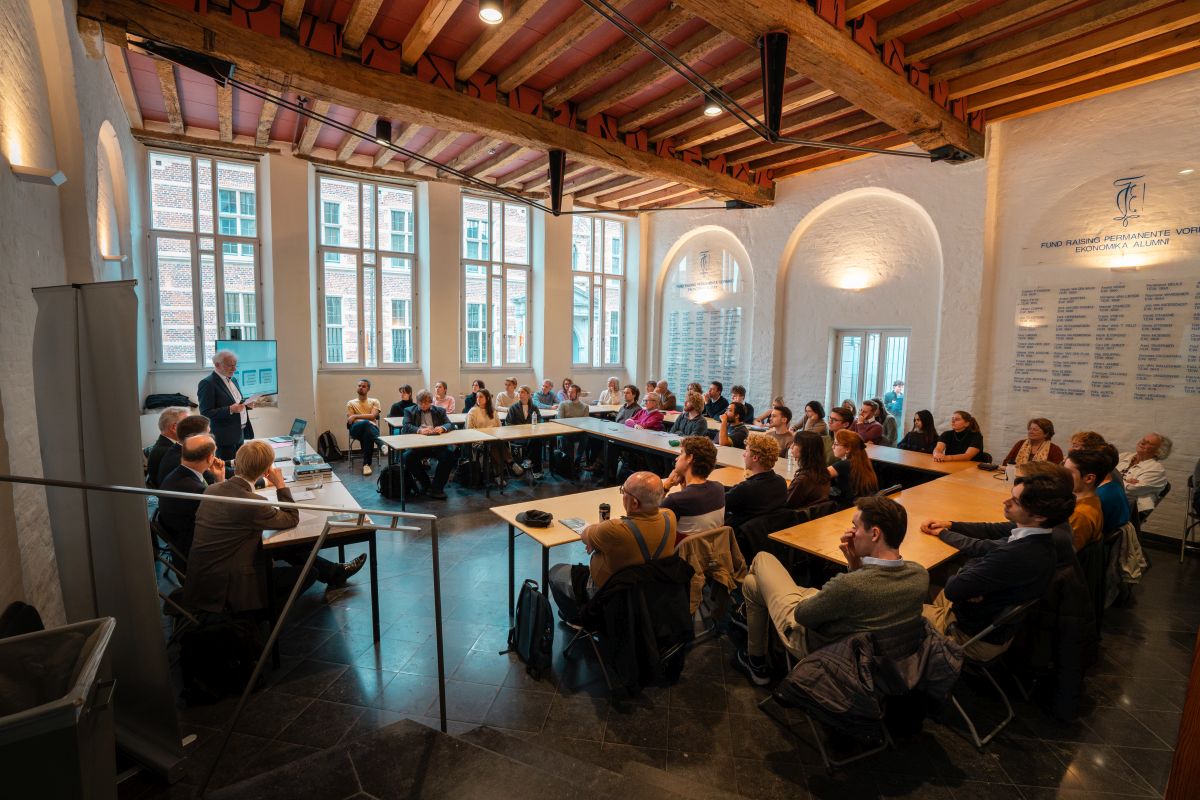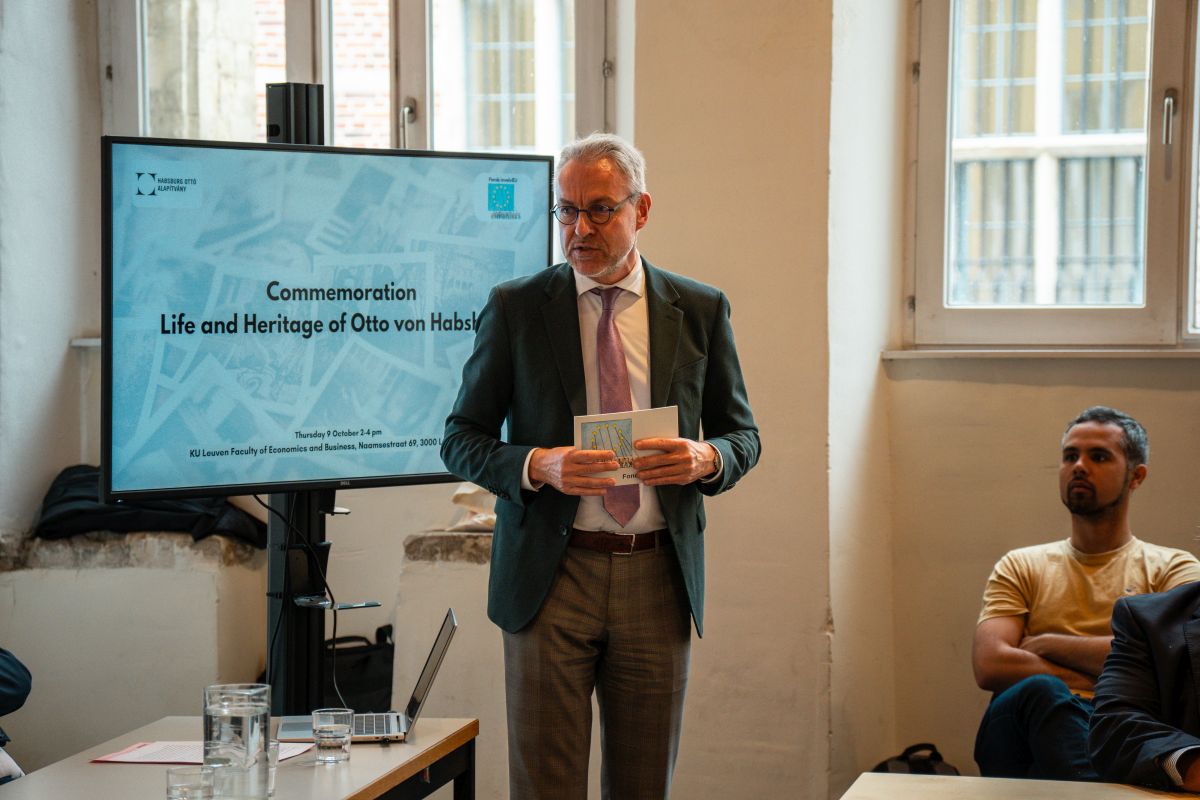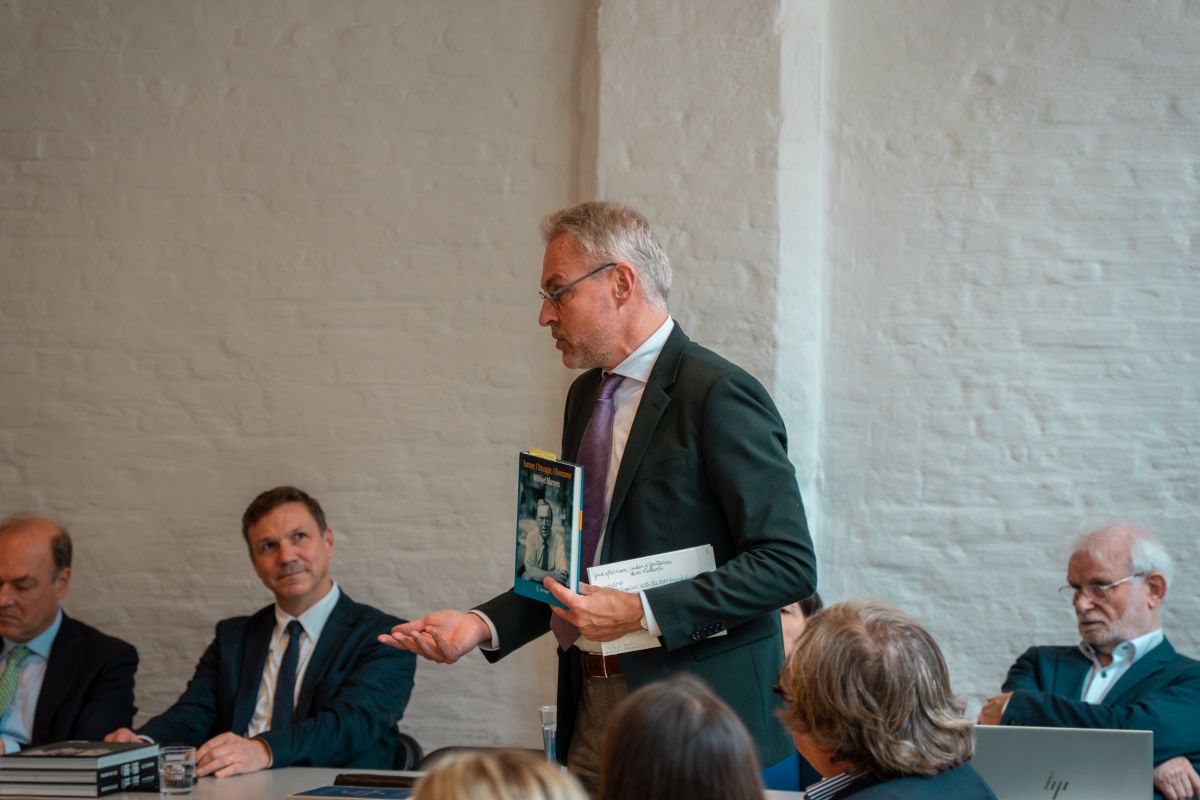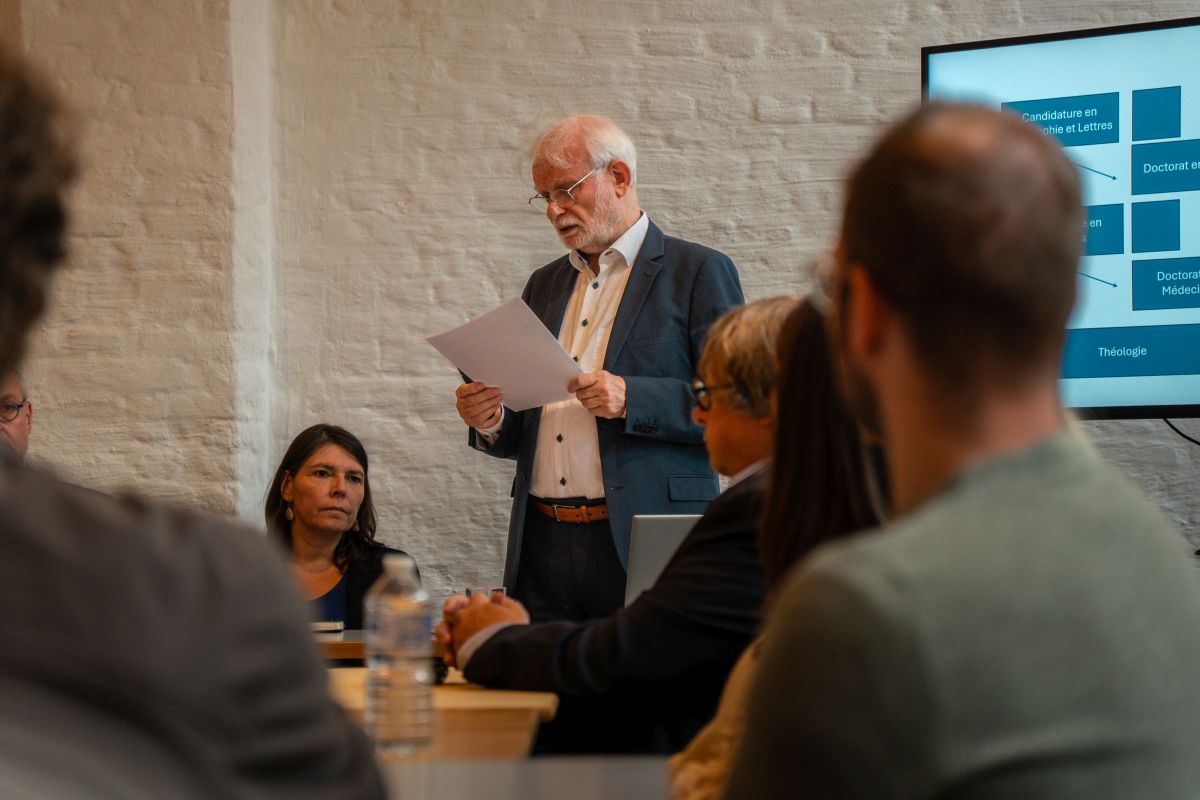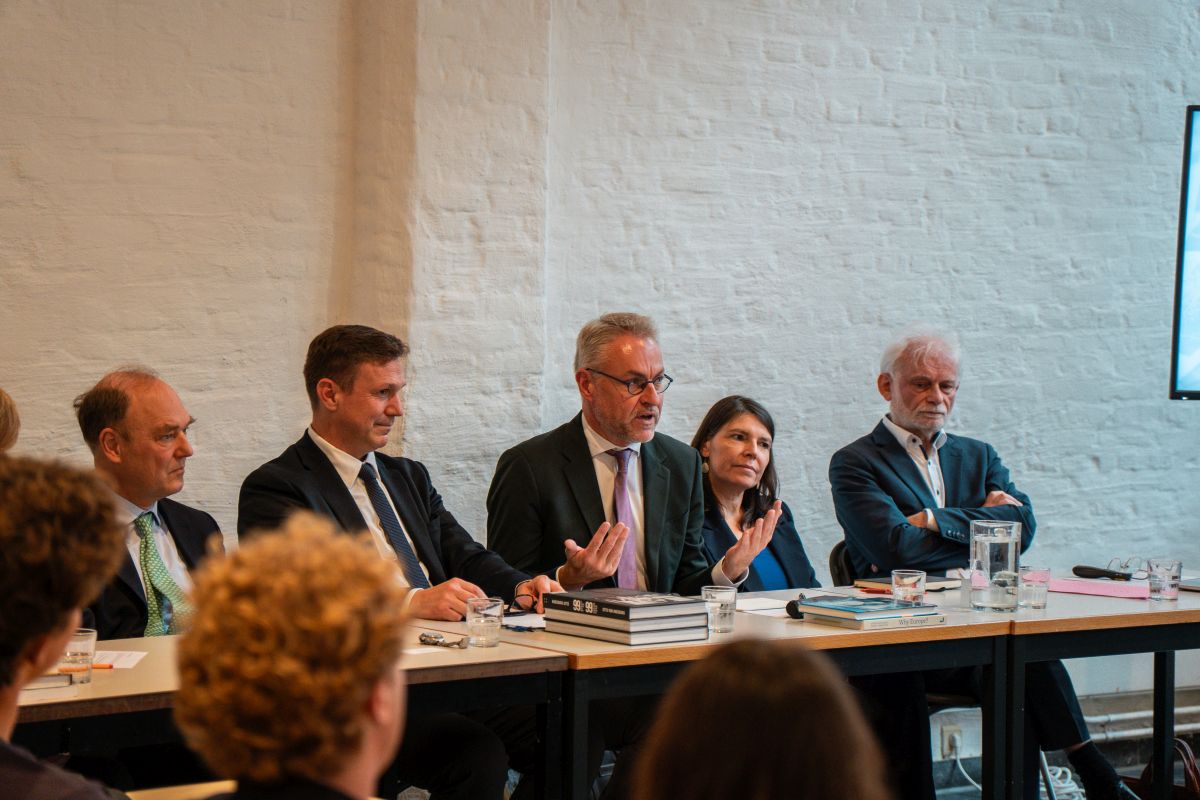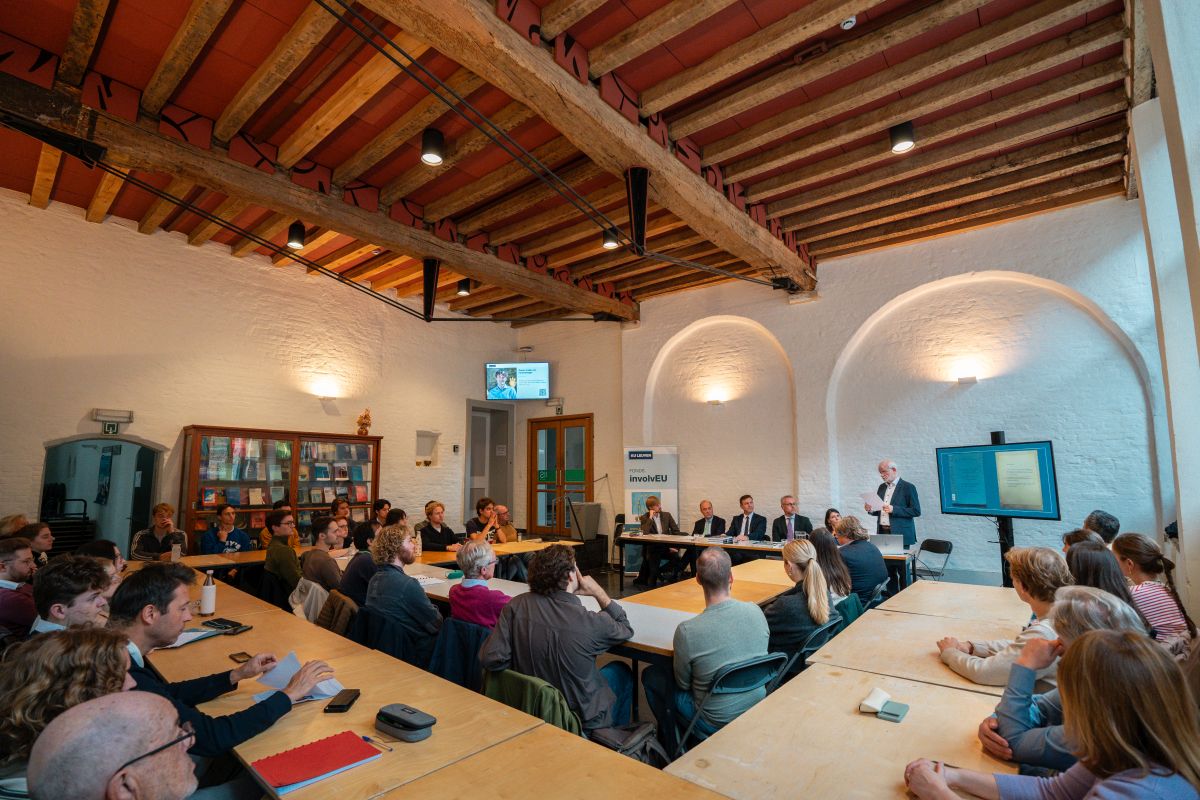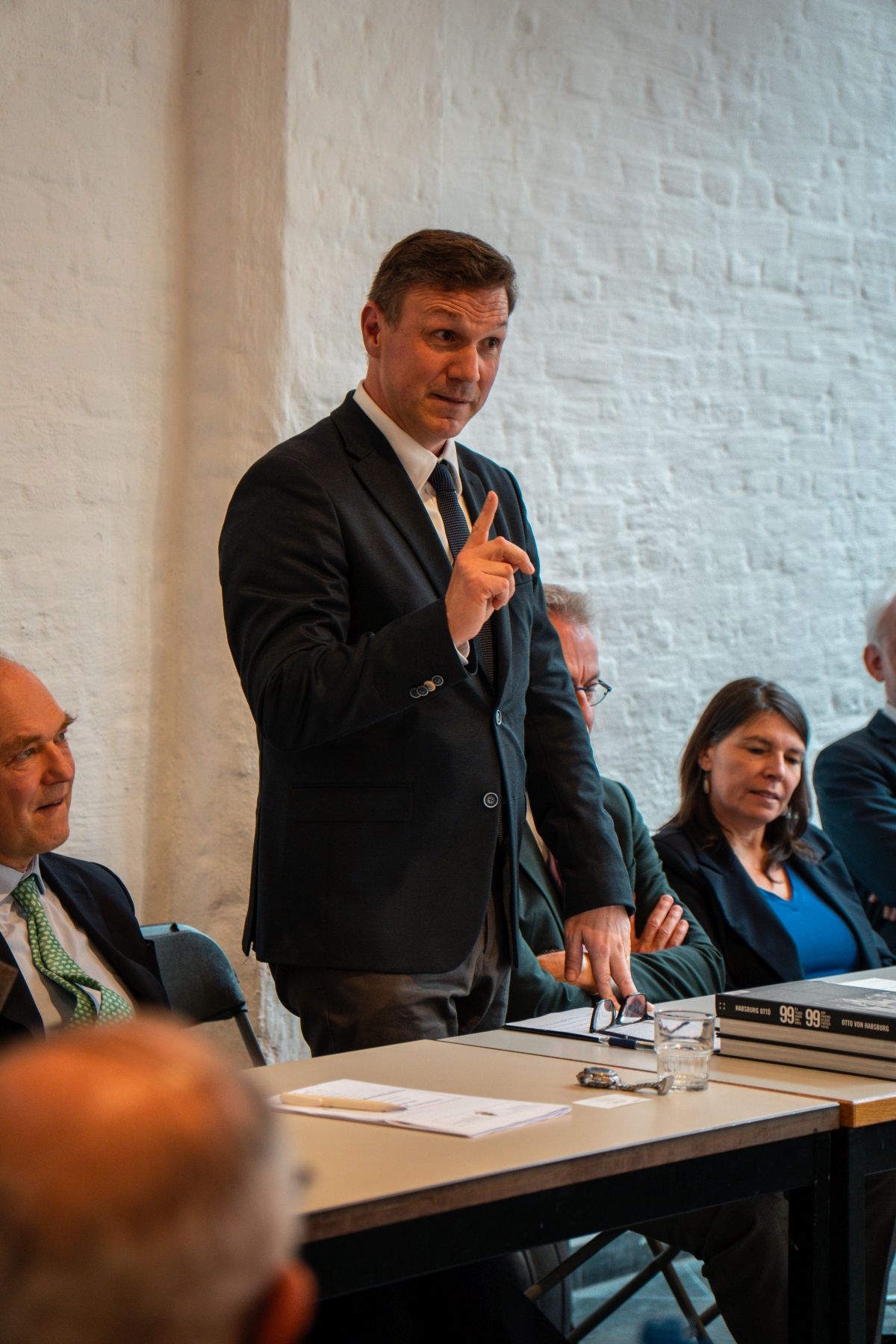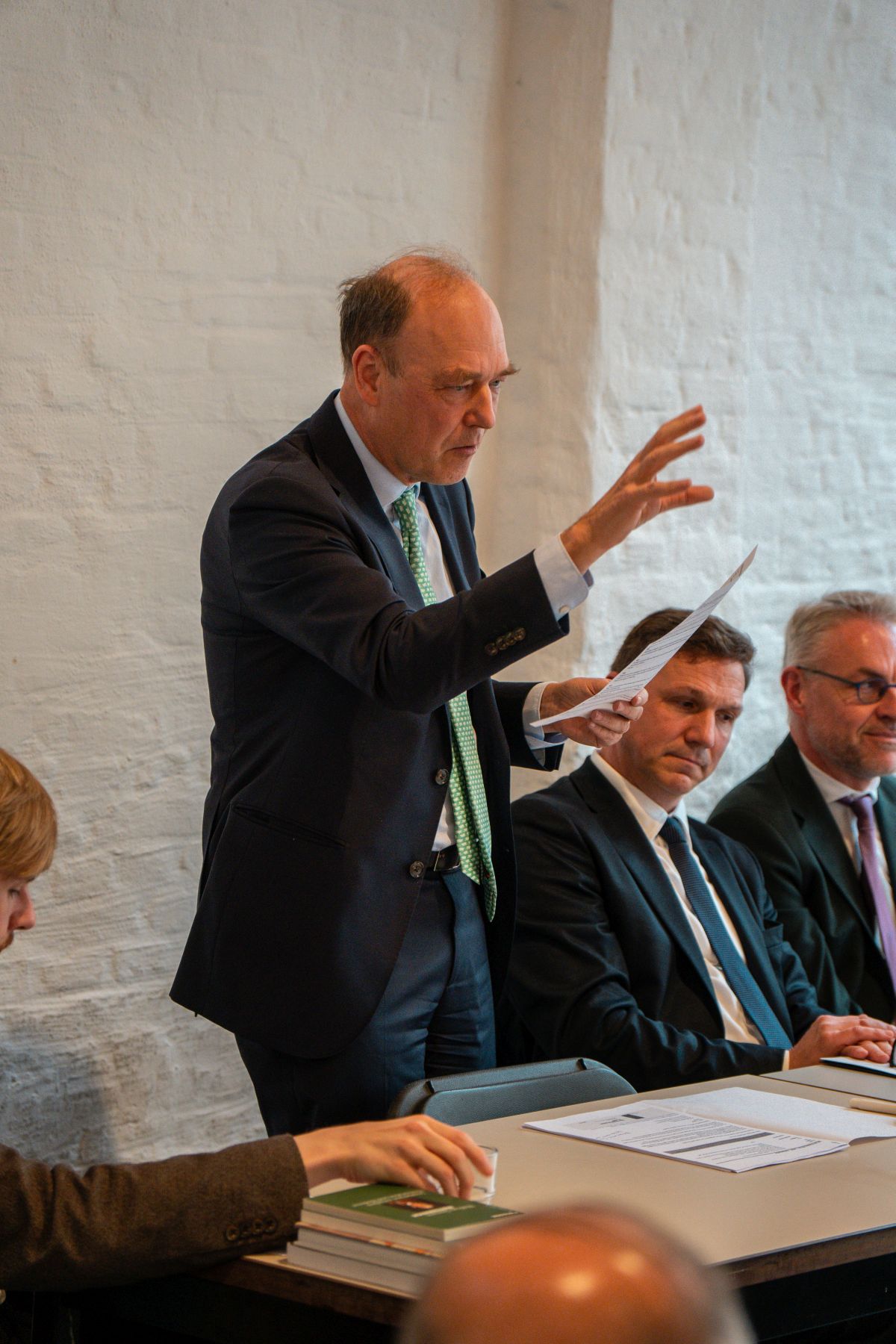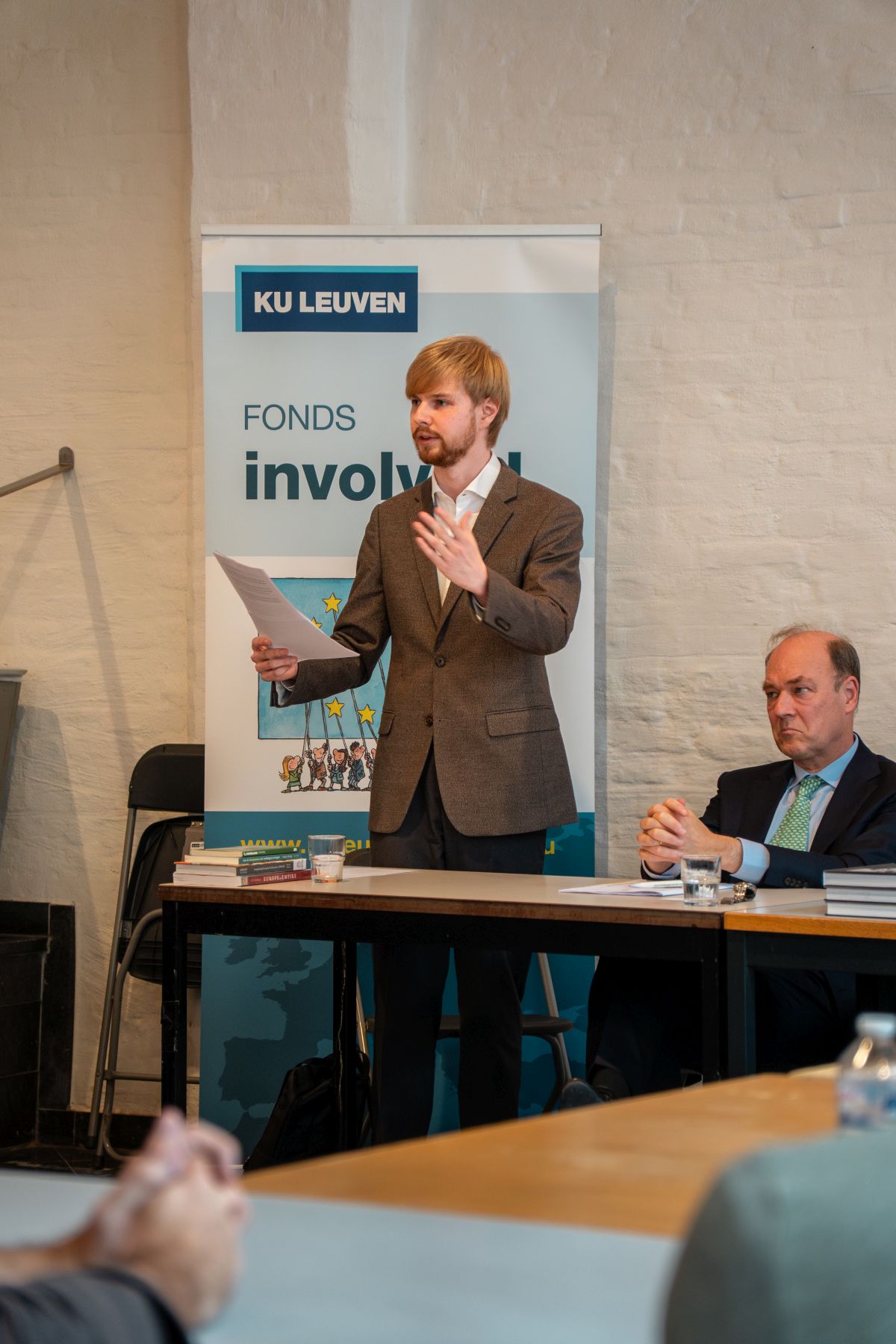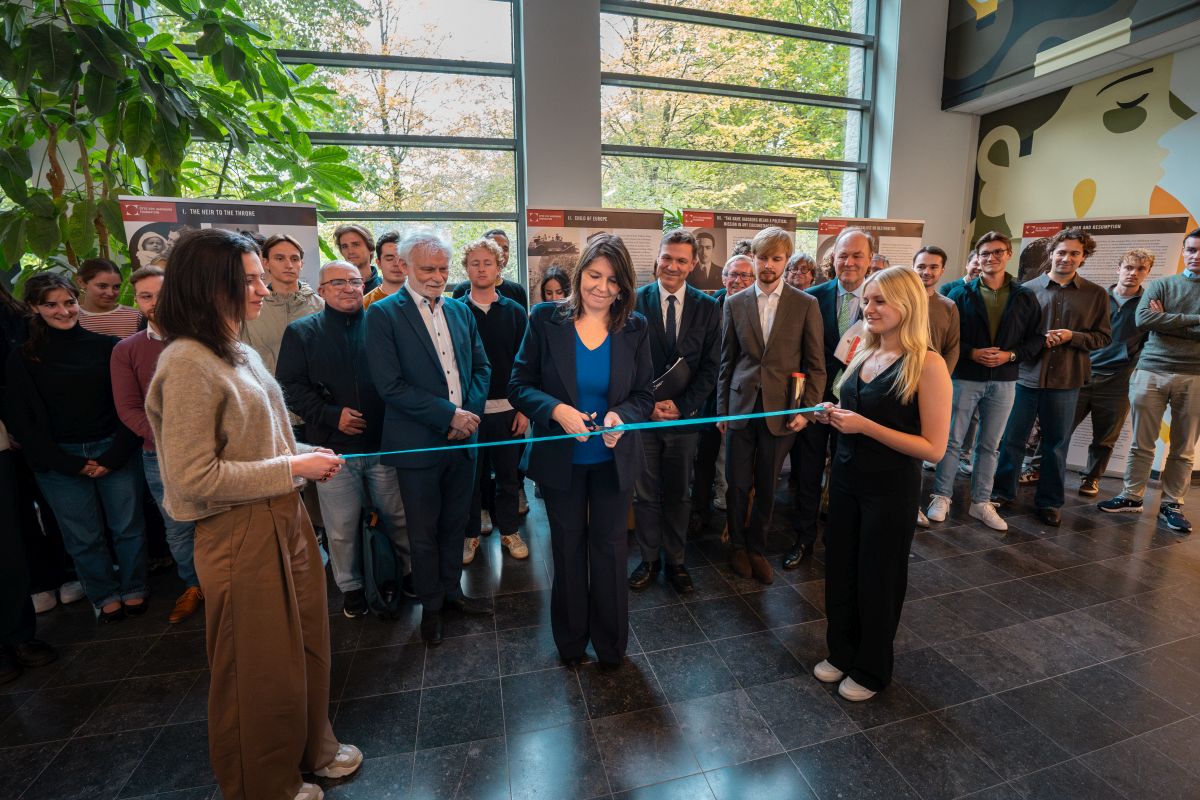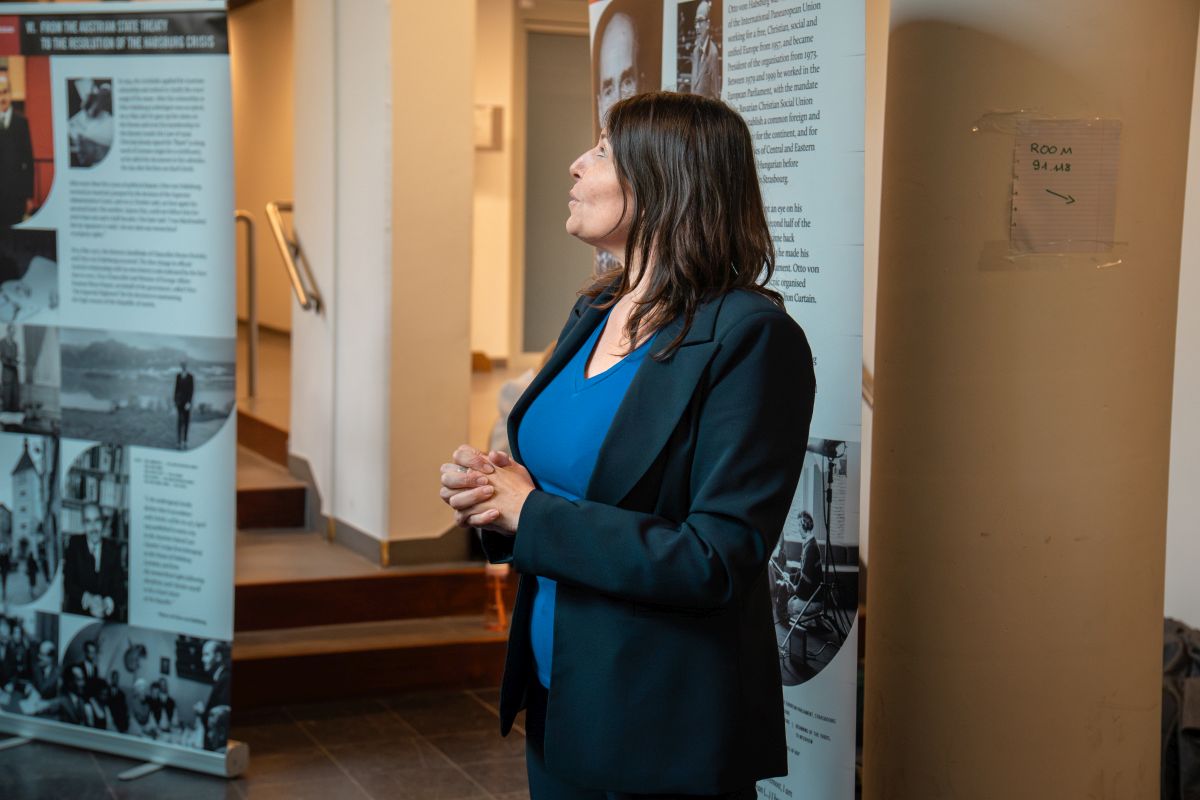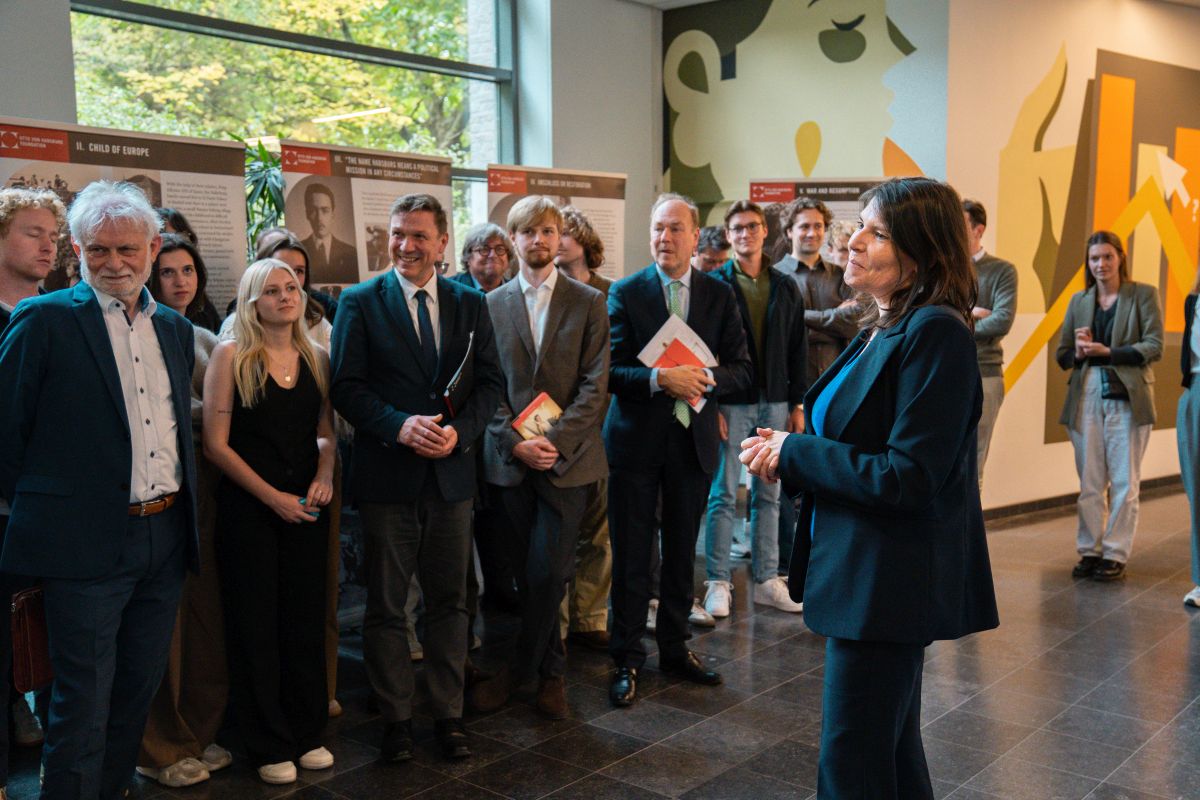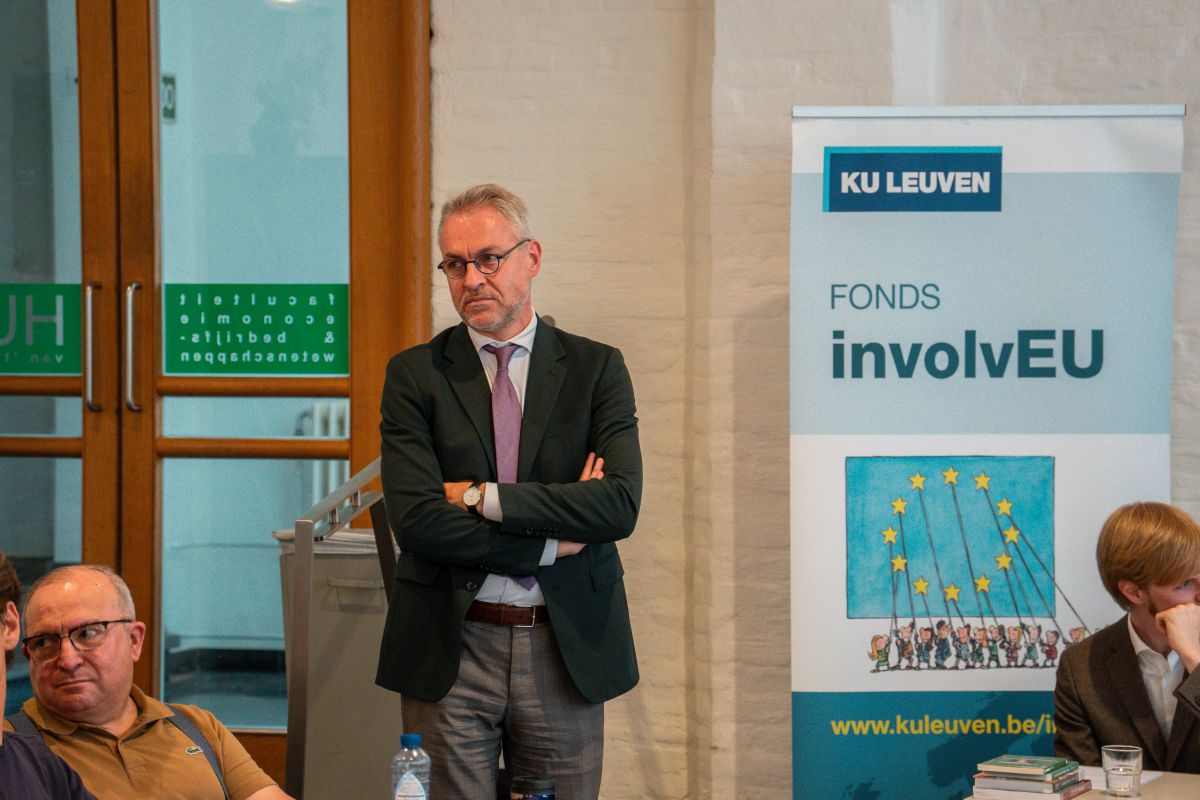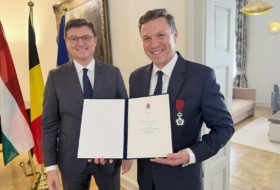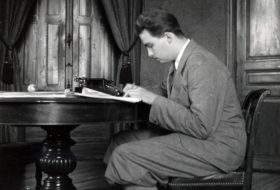Ninety years after he successfully defended his dissertation with distinction at the Belgian University, we honoured our namesake in partnership with his former Alma Mater, which is celebrating its 600th anniversary. With the cooperation of the renowned Western European educational institution’s Faculty of Economics and Business and the assistance of Professor Steven Van Hecke, a conference was organised on 9 October 2025, during which we also presented the exhibition “Life and Heritage” about Otto von Habsburg.
The event took place in the historic Hogenheuvelcollege complex at Naamsestraat 69, in the heart of Leuven. Parts of the building date back to the fifteenth century and have been remodelled several times: from the late eighteenth century until the French Revolution, it served as a seminary, and between 1805 and the 1980s as a boys’ secondary school. Since 1994, it has housed the Faculty of Economics and Business. Although Otto von Habsburg himself probably never entered the building, he would have passed it frequently.
Following opening remarks by Professor Steven Van Hecke and Dean Sophie De Winne, Emeritus Professor Emmanuel Gerard – former Head of the Department of Political Science (1993–2000), Dean of the Faculty of Social Sciences (2003–2010), and President of the KADOC Documentation and Research Centre on Religion, Culture and Society (2007–2017) – reflected on this period in his lecture. He outlined the life of the University between 1929 and 1935, when Otto von Habsburg studied there. He highlighted that the former Crown Prince’s defence was a notable occasion, held in the institution’s oldest building before the Rector and several invited guests, while his peers defended their theses privately before smaller juries. The professor also recalled that Otto’s sister, Archduchess Adelheid, earned her doctorate at Leuven three years later, in 1938 – an exceptional achievement at a time when women were only beginning to gain access to higher education; the first such academic year in Leuven commenced as recently as 1920.
Gergely Fejérdy, Deputy Director for Scientific Affairs of the Foundation, described Otto von Habsburg’s ties with Belgium as well as the process by which the former heir to the throne became a European politician through democratic elections in 1979 and went on to serve as a Member of the European Parliament for two decades. Diplomat Willem van de Voorde – Belgium’s Ambassador to Austria between 2014 and 2018 – gave a thorough overview of relations between the two countries. As historian Lien Verpoest was unable to attend, the final contribution came from Golo Vanden Eynde, a former student of the University, now a researcher at Utrecht University, who spoke about movements and initiatives promoting European unity.
The academic and cultural event attracted considerable interest, with many students, lecturers, and two former Members of the European Parliament among the audience. Dean De Winne concluded the conference with the formal opening of the exhibition, which was on display from 9 to 22 October in the atrium of the Faculty’s modern library. The occasion ended with a reception hosted by the University.
Our Foundation expresses its sincere gratitude to Professor Van Hecke and his colleagues, and to Dániel Vörös, current Director of the Collegium Hungaricum – established through the efforts of Jesuit Father István Muzslay – for their technical assistance. The commemoration not only evoked the intellectual legacy of Otto von Habsburg’s years in Leuven but also laid the groundwork for future collaboration between the Foundation and the University.
